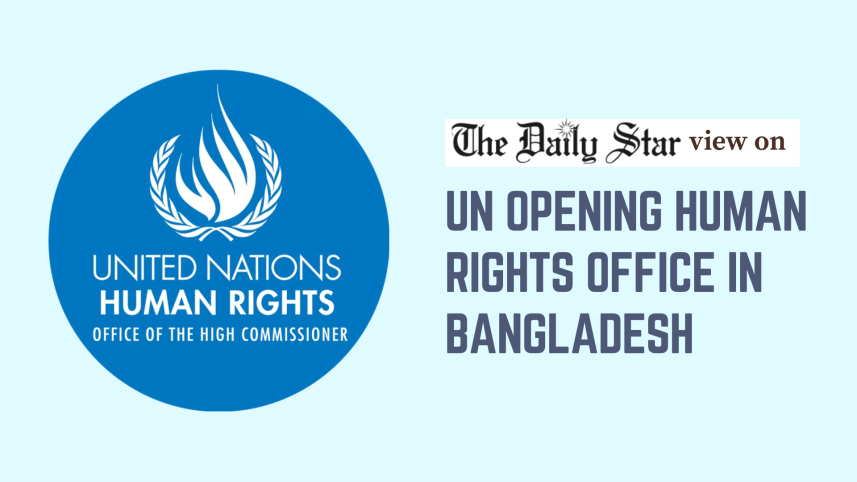A UN rights office can make law enforcers accountable

The interim government's decision to host a mission of the UN Human Rights Office in Bangladesh to promote and protect human rights is a positive step. The decision, one may recall, follows a UN fact-finding mission (OHCHR) investigation conducted not long after the July-August uprising, which documented widespread abuses by state forces under the Awami League regime. Generally, OHCHR country offices are invited by national governments during periods of significant transition, vulnerability, or post-conflict reform.
In Bangladesh, however, its opening with the signing of a three-year MoU between Bangladesh and UN officials has been preceded by protests from certain religious groups. The government has also acknowledged their concerns, particularly about the perceived ideological orientation of UN human rights bodies, and sought to address them through a press statement. In that, it stated that the OHCHR mission will "focus on addressing and preventing serious human rights abuses, such as those perpetrated by the previous government, and ensuring accountability for violations," adding that it will not serve to promote any social agenda that falls outside the country's established legal, social and cultural framework. Bangladesh also retains the sovereign authority to withdraw from the agreement should it "determine that the partnership no longer aligns with national interests," the statement says.
The OHCHR, following its fact-finding mission, made some important recommendations which its office in Dhaka can help implement. Among other things, it called for independent investigations and prosecutions for killings, torture, enforced disappearances, sexual violence, and gender-based violence. Under the police and security sector reforms, it called for reducing use of lethal force, banning certain types of ammunition, reforming police training, establishing an independent police oversight commission, disbanding RAB, etc.
That said, Bangladesh's horrific track record of human rights violations demands that such an international, independent body be set up to act as a watchdog over the government and state machinery in their treatment of citizens. The Sheikh Hasina regime is an example of how a government can abuse its power by using various institutions and agencies to clamp down on citizens whenever it wants to, without facing consequences. Enforced disappearances, extrajudicial killings, torture, and gender-based violence were some of the persistent human rights abuses of the AL regime. During the July-August crackdown, the state's use of excessive force resulted in over 1,400 deaths.
The OHCHR, following its fact-finding mission, made some important recommendations which its office in Dhaka can help implement. Among other things, it called for independent investigations and prosecutions for killings, torture, enforced disappearances, sexual violence, and gender-based violence. Under the police and security sector reforms, it called for reducing use of lethal force, banning certain types of ammunition, reforming police training, establishing an independent police oversight commission, disbanding RAB, etc. Other recommendations include ending unlawful surveillance of journalists, activists, and political opponents, and holding independent inquiries into surveillance practices.
Going forward, we also hope that the UN rights office can help raise the bar for local watchdogs like the National Human Rights Commission (NHRC), which currently has no binding or enforcement powers and cannot compel government agencies or law enforcement to take specific actions. The NHRC cannot even independently investigate abuses by police, military, or other agencies. We must acknowledge that the UNHRO's increasing presence of late signals Bangladesh's increasing willingness to be transparent and to remove the culture of impunity that has long become entrenched within state institutions. We must ensure this journey towards protecting rights continues undeterred.



 For all latest news, follow The Daily Star's Google News channel.
For all latest news, follow The Daily Star's Google News channel.
Comments